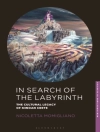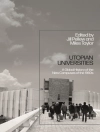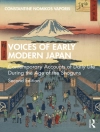Metropolis Berlin: 1880-1940 reconstitutes the built environment of Berlin during the period of its classical modernity using over two hundred contemporary texts, virtually all of which are published in English translation for the first time. They are from the pens of those who created Berlin as one of the world’s great cities and those who observed this process: architects, city planners, sociologists, political theorists, historians, cultural critics, novelists, essayists, and journalists. Divided into nineteen sections, each prefaced by an introductory essay, the account unfolds chronologically, with the particular structural concerns of the moment addressed in sequence—be they department stores in 1900, housing in the 1920s, or parade grounds in 1940. Metropolis Berlin: 1880-1940 not only details the construction of Berlin, but explores homes and workplaces, public spaces, circulation, commerce, and leisure in the German metropolis as seen through the eyes of all social classes, from the humblest inhabitants of the city slums, to the great visionaries of the modern city, and the demented dictator resolved to remodel Berlin as Germania.
Innehållsförteckning
List of Illustrations
Preface
General Introduction
I. Booming Metropolis
1. The Metropolitan Panorama
1. Jules Laforgue, Berlin: The Court and the City (1887)
2. Wilhelm Loesche, Berlin North (1890)
3. Mark Twain, The German Chicago (1892)
4. Heinrich Schackow, Berolina: A Metropolitan Aesthetic (1896)
5. Alfred Kerr, Berlin and London (1896)
6. Alfred Kerr, The Transformation of Potsdamer Strasse (1895, 1897)
7. Max Osborn, The Destruction of Berlin (1906)
8. Werner Sombart, Vienna (1907)
9. Robert Walser, Good Morning, Giantess! (1907)
10. August Endell, The Beauty of the Great City (1908)
11. Oscar Bie, Life Story of a Street (1908)
12. Robert Walser, Friedrichstrasse (1909)
13. Max Weber, Speech for a Discussion (1910)
14. Vorwärts, [City Hall Tower Panorama] (1902)
15. Ernst Bloch, Berlin, Southern City (1915–16)
2. Building and Regulating the Metropolis
16. Theodor Goecke, Traffic Thoroughfares and Residential Streets (1893)
17. Rudolf Adickes, The Need for Spacious Building Programs in City Expansions and the Legal and Technical Means to Accomplish This (1895)
18. Vorwärts, [Deforestation around Berlin] (1908)
19. Die Bank, [Speculation in Tempelhof] (1910–11)
20. P. A. A. (Philip A. Ashworth), Berlin (1911)
21. Walter Lewitz, Architectural Notes on the Universal Urban Planning Exhibition, Berlin (1911)
22. Various authors, The Greater Berlin Competition 1910: The Prize-Winning Designs with Explanatory Report (1911)
23. Cornelius Gurlitt, Review of Greater Berlin and The Greater Berlin Competition 1910 (1911)
24. Sigmund Schott, The Agglomeration of Cities in the German Empire: 1871–1910 (1912)
25. Patrick Abercrombie, Berlin: Its Growth and Present State (1914)
3. Production, Commerce, and Consumption
26. Georg Simmel, The Berlin Trade Exhibition (1896)
27. Albert Hoffmann, The Wertheim Department Store in Leipziger Strasse (1898)
28. Robert Walser, Aschinger’s (1907)
29. Karl Scheffler, The Retail Establishment (1907)
30. Leo Colze, The Department Stores of Berlin (1908)
31. Erich Köhrer, Berlin Department Store: A Novel from the World City (1909)
32. Karl Scheffler, Peter Behrens (1913)
33. Karl Ernst Osthaus, The Display Window (1913)
34. Paul Westheim, Nordstern: The New Administration Building in Berlin-Schöneberg (1915)
4. Public Transport and Infrastructure
35. Anonymous, The Concourse of the Anhalter Bahnhof (1880)
36. Alfred Kerr, New and Beautiful!—Bülowstrasse? (1900)
37. Richard Peterson, The Traffic Problems Inherent in Large Cities and the Means of Solving Them (1908)
38. Karl Scheffler, The Elevated Railway and Aesthetics (1902)
39. August Endell, The Beauty of the Great City (1908)
40. Anonymous, The Northern Loop: A Journey on the Ring Railway (1913)
41. Peter Behrens, The Influence of Time and Space Utilization on Modern Design (1914)
42. Karl Ernst Osthaus, The Railway Station (1914)
5. The Proletarian City
43. Theodor Goecke, The Working-Class Tenement Block in Berlin (1890)
44. Otto von Leixner, Letter Eight: A Suburban Street in New Moabit (1891)
45. Heinrich Albrecht, The Working-Class Tenement Buildings of the Berlin Savings and Building Society (1898)
46. Alice Salomon, A Club for Young Working Women in Berlin (1903)
47. Werner Sombart, Domesticity (1906)
48. Albert Südekum, Impoverished Berlin Dwellings—Wedding (1908)
49. Clara Viebig, Our Daily Bread (1907)
50. Karl Scheffler, The Tenement Block (1911)
51. Käthe Kollwitz, Diary Entry, 16 April 1912
52. Max Jacob, From Apartment House to Mass Apartment House (1912)
53. Victor Noack, Housing and Morality (1912)
6. Public Realm and Popular Culture
54. Paul Lindau, Unter den Linden (1892)
55. Anonymous, The New Prison for Berlin at Tegel (1900)
56. Alfred Kerr, In the New Reichstag (1900)
57. Freisinnige Zeitung, [A Military Parade] (1900)
58. Berliner Tageblatt, [A Sunday in Berlin] (1903)
59. Hans Ostwald, Berlin Coffeehouses (c. 1905)
60. Brüstlein, The Rudolf Virchow Hospital in Berlin (1907)
61. Jules Huret, Bruno Schmitz’s ’Rheingold’ for Aschinger (1909)
62. Anonymous, New Buildings Planned for Museum Island, Berlin (1910)
63. Wilhelm Bode, Alfred Messel’s Plans for the New Buildings of the Royal Museums in Berlin (1910)
64. Paul Westheim, Ludwig Hoffmann’s Berlin School Buildings (1911)
65. Max Wagenführ, The Admiral’s Palace and Its Bathing Pools (1912)
66. Fritz Stahl, The Berlin City Hall (1912)
67. Else Lasker-Schüler, The Two White Benches on the Kurfürstendamm (1913)
68. Bruno Taut, The Problem of Building an Opera House (1914)
69. Anonymous [Joseph Adler?], The Opening of the Tauentzien Palace Café (1914)
7. The Bourgeois City
70. Theodor Fontane, The Treibel Villa (1892)
71. Alfred Kerr, Herr Sehring Builds a Theater Dream (1895)
72. Alfred Kerr, Up and Down the Avenues (1898)
73. Walther Rathenau, The Most Beautiful City in the World (1899)
74. Alfred Kerr, New Luxury, Old Squalor (1900)
75. Hermann Muthesius, The Modern Country Home (1905)
76. Edmund Edel, Berlin W. (1906)
77. Max Creutz, Charlottenburg City Hall (1906)
78. Max Creutz, The New Kempinski Building (1907)
79. Maximilian Rapsilber, Hotel Adlon (1907)
80. Robert Walser, Berlin W. (1910)
81. Robert Walser, The Little Berlin Girl (1909)
82. Walter Lehweß, The Design Competition for Rüdesheimer Platz (1912)
83. Wilhelm Borchard, The Picnic Season (1914)
84. Paul Westheim, Building Boom (1917)
8. The Green Outdoors
85. Wilhelm Bölsche, Beyond the Metropolis (1901)
86. Heinrich Hart, Statutes of the German Garden City Association (1902)
87. Hans Kampffmeyer, The Garden City and Its Cultural and Economic Significance (1906–7)
88. Heinrich Pudor, The People’s Park in Greater Berlin (1910)
89. Karl Ernst Osthaus, Garden City and City Planning (1911)
90. Anonymous, Lietzensee Park in Charlottenburg (1912)
91. Hannes Müllerfeld, Down with the Garden City! (1914)
92. Max Osborn, The Fairy-Tale Fountain in the Friedrichshain, Berlin (1914)
93. Paul Westheim, Workers’ Housing Estate at Staaken (1915)
94. Martin Wagner, Urban Open-Space Policy (1915)
95. Bruno Taut, The Falkenberg Garden Suburb near Berlin (1919–20)
II. World War I and the City
9. City in Crisis
96. Bruno Taut, A Necessity (1914)
97. Vorwärts, [War or Not] (1914)
98. General von Kessel, Berlin in a State of War: Proclamation of the Commander-in-Chief in the Marches (1914)
99. H. B., [War Fever in Berlin, August 1914]
100. Berliner Tageblatt, [Berlin Potato Shortage] (1915)
101. Anonymous, Competition for Greater Berlin Architects (1916)
102. Berliner Tageblatt, Demonstration in Berlin (1918)
103. Friedrich Bauermeister, On the Great City (1918)
104. Walter Gropius, The New Architectural Idea (1919)
105. Leopold Bauer, The Economic Unsustainability of the Large City (1919)
10. Critical Responses
106. Paul Wolf, The Basic Layout of the New City (1919)
107. Bruno Taut, The City Crown (1919)
108. Otto Bartning, Church Architecture Today (1919)
109. Peter Behrens and Heinrich de Fries, On Low-Cost Building (1919)
110. Käthe Kollwitz, Diary Entry, 11 September 1919
111. Hermann Muthesius, Small House and Small-Scale Housing Development (1920)
III. Weltstadt—World City
11. Planning the World City
112. Martin Mächler, The Major Population Center and Its Global Importance (1918)
113. Bruno Möhring, On the Advantages of Tower Blocks and the Conditions under Which They Could Be Built in Berlin (1920)
114. Siegfried Kracauer, On Skyscrapers (1921)
115. Martin Mächler, On the Skyscraper Problem (1920–21)
116. Joseph Roth, If Berlin Were to Build Skyscrapers: Proposals for Easing the Housing Shortage (1921)
117. Adolf Behne, The Competition of the Skyscraper Society (1922–23)
118. Egon Erwin Kisch, The Impoverishment and Enrichment of the Berlin Streets (1923)
119. Ernst Kaeber, The Metropolis as Home (1926)
120. Karl Scheffler, Berlin Fifty Years from Now: Perspectives on One of the World’s Great Cities (1926)
121. Martin Wagner, Werner Hegemann, and Heinrich Mendelssohn, Should Berlin Build Skyscrapers? (1928)
122. Martin Wagner and Adolf Behne, The New Berlin–Berlin, World City (1929)
123. Martin Wagner, The Design Problem of a City Square for a Metropolis: The Competition of the ’Verkehr’ Company for the Remodeling of Alexanderplatz (1929)
124. Max Berg, The Platz der Republik in Berlin (1930)
125. Werner Hegemann, Berlin, City of Stone: The History of the Largest Tenement City in the World (1930)
126. Walter Benjamin, A Jacobin of Our Time: On Werner Hegemann’s Das steinerne Berlin (1930)
127. Hannes Küpper, The ’Provinces’ and Berlin (1931)
128. Adolf Hitler, Speech at Foundation-Stone Ceremony of the Faculty of Defense Studies, Berlin (1937)
12. Berlin Montage
129. Käthe Kollwitz, Diary Entry, 25 January 1919
130. Kurt Tucholsky, ’Berlin! Berlin!’ (1919)
131. ’Sling’ (pseud. Paul Schlesinger), The Telephone (1921)
132. Käthe Kollwitz, Diary Entry, 1 May 1922
133. Friedrich Kroner, Overstretched Nerves (1923)
134. Adolf Hitler, My Struggle (1926)
135. Joseph Roth, The Wandering Jew (1927)
136. Ernst Bloch, Berlin After Two Years (1928)
137. Alfred Döblin, Berlin (1928)
138. Franz Hessel, I Learn: Via Neukölln to Britz (1929)
139. Carl Zuckmeyer, The Berlin Woman (1929)
140. Moritz Goldstein, The Metropolis of the Little People (1930)
141. Karl Scheffler, Berlin: A City Transformed (1931)
142. Siegfried Kracauer, The New Alexanderplatz (1932)
143. Siegfried Kracauer, Locomotive over Friedrichstrasse (1933)
144. Jean Giraudoux, Berlin, Not Paris! (1931)
145. Ernst Erich Noth, The Tenement Barracks (1931)
146. Siegfried Kracauer, A Section of Friedrichstrasse (1932)
147. Gabrielle Tergit, Home is the 75 (or the 78) (1930)
148. Christopher Isherwood, A Berlin Diary (Winter 1932–33)
13. Work
149. Alfred Döblin, General Strike in Berlin (1922)
150. Ludwig Hilberseimer, Buildings for the Metropolis (1925)
151. Franz Hessel, On Work (1929)
152. Peter Panter (pseud. Kurt Tucholsky), Hang on a Moment! (1927)
153. Fritz Stahl, The Klingenberg Power Station at Berlin-Rummelsburg (1928)
154. Hermann Schmitz, Introduction to Siemens Buildings (1928)
155. Egon Erwin Kisch, Berlin at Work (1978)
156. Anonymous, A New High-Rise Building in Berlin: Architect Peter Behrens (1931)
157. Irmgard Keun, Gilgi—One of Us (1931)
158. Else Lasker-Schüler, The Spinning World Factory (1932)
159. Hans Fallada, Little Man, What Now? (1933)
160. Herbert Rimpl and Hermann Mäckler, A German Aircraft Factory: The Heinkel Works in Oranienburg (1938)
14. Commodities and Display
161. Alfred Döblin, Berlin Christmas (1923)
162. Alfred Gellhorn, Advertising and the Cityscape (1926)
163. Gerta-Elisabeth Thiele, The Shop Window (1926)
164. Peter Panter (pseud. Kurt Tucholsky), The Loudspeaker (1927)
165. Hans Cürlis, Night and the Modern City (1928)
166. Hugo Häring, Illuminated Advertising and Architecture (1928)
167. Joseph Roth, The Really Big Department Store (1929)
168. Alfred Wedemeyer, Berlin’s Latest Department Store (1929)
169. Ludwig Hilberseimer, The Modern Commercial Street (1929)
170. Alfons Paquet, City and Province (1929)
15. Housing
171. Fritz Schumacher, The Small Apartment (1919)
172. Kurt Tucholsky, 150 Kaiserallee (1920)
173. Bruno Taut, The New Home: Woman as Creative Spirit (1924)
174. Martin Wagner, Vienna—Berlin: Housing Policies Compared (1925)
175. Ludwig Hilberseimer, On Standardizing the Tenement Block (1926)
176. Leo Adler, Housing Estates in the Britz District of Berlin (1927)
177. Walter Gropius, Large Housing Estates (1930)
178. Werner Hegemann, Berlin and World Architecture: On the Berlin Building Exhibition (1931)
179. Martin Wagner, Administrative Reform (1931)
180. Ilse Reicke, Women and Building (1931)
181. Siegfried Kracauer, Building Exhibition in the East (1931)
182. Heinz-Willi Jüngst, Housing for Contemporaries (1932)
183. Gottfried Feder, The German Housing Development Board (1934)
184. Herbert Hoffmann, The Residential Estate on Berlin’s Grosse Leegestrasse (1936)
185. The Construction of Communities on the Basis of the People, the Land, and the Landscape (1940)
16. Mass and Leisure
186. Bruno Taut, On New Theaters (1919)
187. Egon Erwin Kisch, Elliptical Treadmill (1919)
188. Adolf Behne, Grosses Schauspielhaus, Scalapalast (1921)
189. Siegfried Kracauer, Rollercoaster Ride (1921)
190. Berliner Börsen-Courier, [Cinema] (1923)
191. Alfred Flechtheim, Gladiators (1926)
192. Gerhard Krause, The German Stadium and Sport Forum (1926)
193. Matheo Quinz, The Romanisches Café (1926)
194. Hans Poelzig, The Capitol Cinema (1926)
195. J-S, Review of Walther Ruttmann’s Film Berlin: The Symphony of a Great City (1927)
196. Leo Hirsch, Cinemas (1927)
197. Billy Wilder, Berlin Rendezvous (1927)
198. Siegfried Kracauer, Under Palm Trees (1930)
199. Curt Moreck, A Guide to ’Licentious’ Berlin (1931)
200. Siegfried Kracauer, Radio Station (1931)
201. Hermann Sinsheimer, Boxing Ring (1931)
202. Siegfried Kracauer, Berlin as a Summer Resort (1932)
203. Werner March, The Buildings of the National Sport Arena (1936)
17. Technology and Mobility
204. Friedrich Krause and Fritz Hedde, Swinemünder Bridge (1922)
205. Berliner Tageblatt, [Cycling in Berlin] (1923)
206. Joseph Roth, Declaration to the Gleisdreieck (1924)
207. Ignaz Wrobel (pseud. Kurt Tucholsky), Berlin Traffic (1926)
208. Billy Wilder, Nighttime Joyride over Berlin (1927)
209. Bernard von Brentano, The Pleasure of Motoring (c. 1928)
210. Vicki Baum, Grand Hotel (1929)
211. Siegfried Kracauer, Proletarian Rapid Transit (1930)
212. Peter Panter (pseud. Kurt Tucholsky), Traffic Passing over the House (1931)
213. Siegfried Kracauer, The Cult of the Automobile (1931)
214. Siegfried Kracauer, On Board the ’Hamburg Flier’: Special Press Trip, Berlin to Hamburg (1933)
215. E. Neumann, Object—Subject (1934)
216. Anonymous, The Intercontinental Airport at Tempelhof (1938)
217. Jakob Werlin / Albert Speer, On the Autobahns of the Reich (1938)
218. Hans Stephan, The Autobahn (1939)
18. From Berlin to Germania
219. Siegfried Kracauer, Screams on the Street (1930)
220. Irmgard Keun, The Artificial Silk Girl (1932)
221. Heinrich Hauser, The Flood of Humanity at Tempelhof (1933)
222. Joseph Goebbels, Berlin Awakes (1934)
223. Herbert Hoffmann, The Air Ministry Building (1936)
224. Adolf Hitler, The Buildings of the Third Reich (1937)
225. The New Berlin Cityscape (1938)
226. Adolf Hitler, Speech at the Topping-Out Ceremony of the New Reich Chancellery (1938)
227. Hans Stephan, Berlin (1939)
228. Albert Speer, Replanning the Capital of the Reich (1939)
229. Adolf Hitler, Table Talk (1941)
Acknowledgments
Index
Om författaren
Iain Boyd Whyte is Professor of Architectural History at the University of Edinburgh and author of Manmade Future (Routledge, 2007). David Frisby was Professor of Sociology at the London School of Economics and author of Cityscapes of Modernity: Critical Explorations (Cambridge, 2001).












